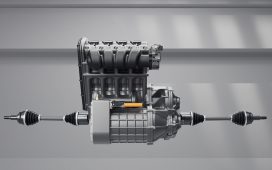Major EU ports are almost full to capacity with Chinese electric vehicles (EVs) that no one wants to buy. A slump in sales across Europe has caused parking lots at the Belgian ports of Antwerp and Zeebrugge to fill up with the Chinese imports.
The parking lots are each able to accommodate about 130,000 vehicles and are crammed full of MGs, BYDs, Nios, XPengs, Lynk & Cos, Omodas and Hongqis, among others.
Chinese EV companies have aggressively targeted European markets as they look to take advantage of the EU’s green agenda.
The European Council passed a law last March requiring all new cars and vans sold in the bloc to be zero-emission by 2035.
Under the regulation, new cars sold in the EU must achieve 55 percent emission reductions from 2030-34 compared with 2021, while vans must attain a 50 percent cut.
But as of 2035, all cars and vans sold in the EU must have 100 percent emission reductions.
In an effort to encourage drivers to go green, many EU states have offered generous incentives using millions of euros of taxpayers’ money.
Yet EV sales in March slumped by 11.3 percent overall across the EU, with purchases in Germany down by as much as 28.9 percent.
Chinese EVs have continued to pour into Belgium despite the downturn, with as many as 1.3million arriving in the first quarter of 2024 – a 33 percent increase on last year.
A spokesman for the Port of Antwerp-Bruges, the second largest in Europe, said: “This is what is happening in all European ports that handle large numbers of cars.”
The port is expecting to receive as many as one million Chineses EVs during 2024, as the influx of imports shows no sign of slowing down.
New data from the campaign group Transport and Environment show that almost one fifth of electric vehicles sold in Europe in 2023 were made in China.
Chinese EVs are expected to account for 25 percent of all electric car sales in 2024.
The forecast comes as EU politicians continue to discuss whether to impose import tariffs to counter state subsidies for China’s EV industry.
However, top executives at BMW and Volkswagen have warned the EU that tariffs would be counterproductive and could undermine the bloc’s Green Deal plan.









